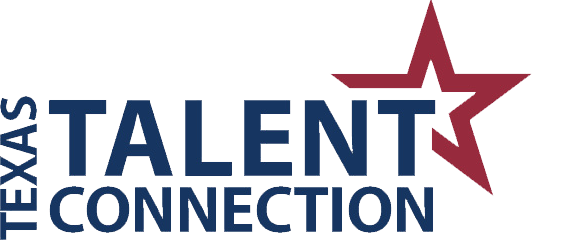Community Partners
About Us
Community partnerships are vital to the work we do at Workforce Solutions for North Central Texas (WSNCT). By collaborating with local and regional agencies, nonprofits, and community organizations, we create connections that help individuals access the resources, programs, and services they need to succeed in their careers. These partnerships play a crucial role in supporting workforce development and addressing the unique challenges faced by underserved populations in our 14-county service area.
Together, we work to improve access to quality jobs, ensure equitable opportunities, and align efforts to build a stronger, more resilient workforce. Through these collective efforts, we aim to empower individuals on their path to self-sufficiency while strengthening the communities we serve.
Existing Community Partners
If you are a community partner looking to refer customers to our services, please complete the Community Partner Referral Form.
Request Community Partner Collateral
Interested In Becoming A Community Partner?
If your organization wants to work with WSNCT to address workforce challenges, contact us at partners@dfwjobs.com. We welcome the chance to collaborate and build stronger communities.
The Workforce Innovation and Opportunity Act (WIOA) mandates that the Texas Workforce Commission (TWC) establish strategic partnerships with various organizations to enhance workforce development. The North Central Texas Workforce Board has local and regional partners across our 14-county service area including:
- Texas Workforce Commission
- Texas Veterans Network/Combined Arms
- North Texas Job Corps
- Native American Programs – Texas Native Health
- U.S Department of Housing and Urban Development
- Senior Community Service Employment Program
- Community Services, Inc.
- North Texas Food Bank
- Tarrant Area Food Bank
- EMPOWER
- Our Communities Our Kids
- Goodwill North Central Texas
- The Salvation Army
Resources for Community Partners
Lone Star Workforce of the Future Fund
 Public community or technical colleges, or nonprofit organizations are eligible for funds to support workforce training programs for entry to mid-level jobs in high demand occupations. Lone Star Workforce of the Future Program parameters include:
Public community or technical colleges, or nonprofit organizations are eligible for funds to support workforce training programs for entry to mid-level jobs in high demand occupations. Lone Star Workforce of the Future Program parameters include:
- Cost per trainee of up to $7,500
- Grants may be up to $250,000
- 40% of project funding must come from a source other than state government
- At least 50% of program participants must be placed into high demand occupations that earn a self-sufficient wage
Self Sufficiency Fund
A private, nonprofit community-based organization (501(c)(3)), public community college, technical college, or Texas A&M Engineering Extension Service can apply for a grant of up to $500,000 for training projects. Self Sufficiency Fund Program parameters include:
- Training for adult recipients of Temporary Assistance for Needy Families (TANF), Supplemental Nutritional Assistance Program (SNAP), individuals at risk of being on public assistance, low-income parents, and youth up to the age of 24 who are part of a low-income family.
- Training must result in an acceptable industry-recognized certification that leads to permanent full-time employment opportunities
- Target average cost per trainee of $2,500
Texas Talent Connection Grant Program
 The Texas Talent Connection grants, funded through Wagner-Peyser 7(b) funds, are administered through partnerships that provide workforce training and job placement services. Eligible partnerships may include various combinations of local workforce boards, employers or employer organizations, institutions of higher education, faith-based organizations, local school districts, and not-forprofit community-based organizations. Funding is generally limited to no more than $350,000 for any year.
The Texas Talent Connection grants, funded through Wagner-Peyser 7(b) funds, are administered through partnerships that provide workforce training and job placement services. Eligible partnerships may include various combinations of local workforce boards, employers or employer organizations, institutions of higher education, faith-based organizations, local school districts, and not-forprofit community-based organizations. Funding is generally limited to no more than $350,000 for any year.
The Texas Talent Connection grant program is intended to increase wages and job retention, through:
- Labor exchange services – activities such as job search, job referral, and job placement that may include counseling, assessment, and occupational and labor market information
- Special needs populations – activities targeted to assist groups of workers who are traditionally underrepresented in a given occupation
- Youth programs – activities supporting programs that satisfy one or more of the 14 youth elements allowable under the Workforce Innovation and Opportunity Act (WIOA)
- Training – activities that are tied to work experience, internships, entrepreneurship, or job placement Funded grants should complement, not duplicate, existing workforce services or programs.

Funding for Community and Education Partners
Learn MoreGet Newsletter Updates
Sign up to be the first to hear about Workforce Solutions in your area
Subscribe